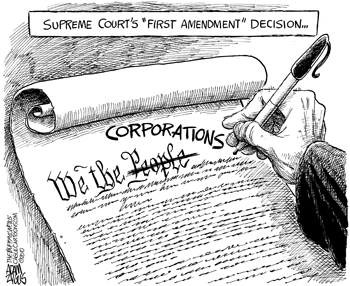Corporate Speech in Citizens United vs. Federal Election Commission
DOI:
https://doi.org/10.13135/2038-6788/9822Parole chiave:
Citizens United vs Federal Election Commission, Corporate Agency, Corporate Speech, Personalità giuridica, Proxy Agency, Corte Suprema degli Stati UnitiAbstract
This essay identifies two arguments in the U.S. Supreme Court’s 2010 ruling in Citizens United vs. Federal Election Commission, a direct argument in Justice Kennedy’s opinion, and an indirect argument in Justice Scalia’s concurring opinion, for applying the First Amendment to corporate speech. It argues that the direct argument’s assumption that corporations are as such agents and speakers is a conceptual and logical mistake. It argues that the indirect argument, which does not rely on this assumption, nonetheless fails to take into adequate account the structure of corporate agency, by failing to distinguish the corporation’s operators from its shareholders, the former being proxy agents of the latter. When these distinctions are drawn, it becomes clear that corporate expenditures on political advocacy do not ipso facto represent shareholder views, and that restrictions on corporate expenditures for political advocacy do not ipso facto restrict shareholder rights to speak as assemblies of persons.



